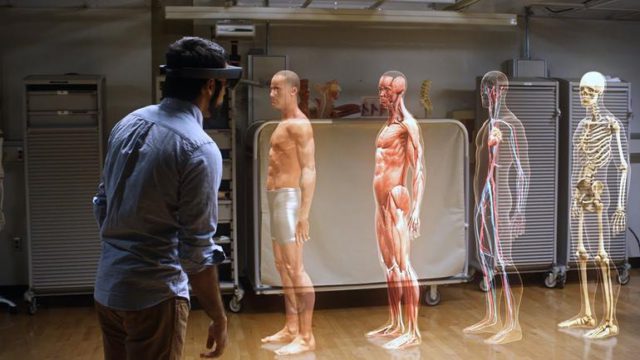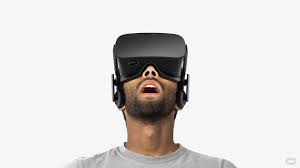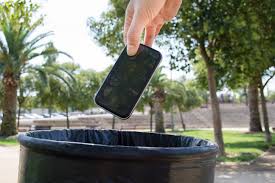Already, Silicon Valley's “gaze” is not directed at smartphones.

The introduction of the first iPhone in 2007 heralded a revolution in the way we use manufacturing capacity, transforming from sitting at a desk at a PC from nine to five to always having access to a handheld device. And now, after almost ten years of active evolution, the smartphone is almost at the peak of its capabilities. Among other things, it 'absorbed' the functions of a PC, a camera, a satellite navigator and is our permanent digital companion. Let's paraphrase a well-known saying: a screen that shines twice as bright shines half as much. And the smartphone shone very brightly.
Smartphone innovation is slowly but surely coming to a standstill. There is not much left to add to the phone, which is why giving the screen a bend equates to a breakthrough. Our smartphones are full of 'smart chips', which many of us do not even know about and which they have never used. In many countries, the smartphone market is oversaturated.
So what's next?
For some time, it seemed that the future belongs to wearable electronics, but such devices are quite difficult to endow with sufficient performance and autonomy to turn into a real alternative to the phone. And even if these obstacles are overcome, the screen on any of the wearable devices will never be large enough and therefore these gadgets will not become our main way of connecting with the digital world. So what remains is augmented and virtual reality.

I tried both technologies and now they amaze and delight, while most of the society happily ignores them. I believe that this trend will change, because modern smartphones already have something that will cause them to 'fade'. The flagships of this model year, released and not yet announced, can already function as VR glasses when connected to an accessory. I don’t think this is enough for a global breakthrough in the use of VR, but it may well give consumers an understanding of the upcoming changes.
My most likely guess in the medium term will be the return of smart glasses as the popularity of AR / VR grows. This class of devices has caused and continues to cause widespread dissatisfaction, the syndrome of a person who refuses to take off smart glasses when communicating with another person has already been documented. And many people do not like to wear them precisely because of the creation of a kind of barrier (especially when a person is reading something, instead of paying attention to the conversation).
But I don't see the next stage in the evolution of personal technology without the involvement of vision. Smart glasses, in turn, will give way to 'smart' contact lenses or even mind-reading technology, which, judging by the recent announcement, is working on Facebook and about an analogue of which Elon Musk spoke about.

Old technologies don't 'die out', they find their niche and turn into 'useless fossil'.
Smartphones, of course, won't completely disappear. The most striking example of a model of such development from our experience with you is the PC: a rapid transition to a new standard and market saturation, then a long period of stagnation, followed by a belated innovative 'explosion' before PCs took a comfortable niche for themselves. Smartphones will have a similar scenario over the next 5-10 years. People will use them for decades to come, similar to how some people still use pagers. But already, Silicon Valley's “gaze” is not directed at smartphones.
Here's the problem: all of the technology of the future (VR) and the idea of using sensors to read minds raises many questions around the security of private information, the proper application of technology and its impact on society. The same questions arose in the early days of the smartphone era: “How appropriate is constant surveillance of users? And what will happen to a society whose members spend more time on their smartphones than talking to each other? '
However, as smart glasses or mind-reading technology make our relationship with technology more intimate and difficult to understand, we may well be looking at the 'complications' of the smartphone era with something akin to nostalgia. .
Original material by Steve Ranger
Here is an alternative opinion: the smartphone will outlive itself, become a relic of the past and become the lot of retrogrades, giving way to new technologies. The author draws a parallel with the PC, while noting the difference between smartphones and the level of interaction with them. In my opinion, the time frames indicated by the author can be called adequate, the closer the interaction with the device, the longer the user will not part with it.
The argument in favor of slowing down smartphones is the fear expressed in the last sentence that all the problems inherent in smartphones as a class of devices will be mere trifles compared to the challenges that the new era of AR / VR / 'mind reading' will bring. Or is humanity not reckless enough to give the machine such access to its thoughts? In the comments, I propose to discuss the approaches of the authors of this and the previous material.
